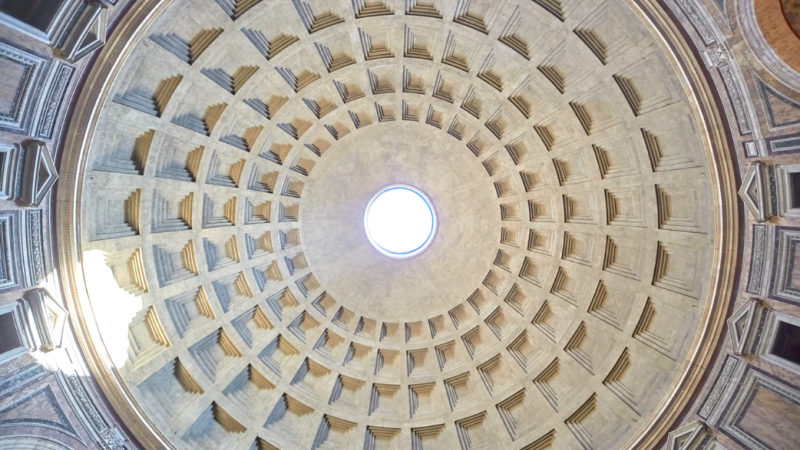One VSA Graduate's Love of Pi: Why Pi Matters

It's that time of the year again! For the uninitiated, March 14th is affectionately regarded as Pi Day named thus on account of the fact that 3/14 is reminiscent of the first three digits of the mathematical constant π (3.14). Subsequently, it has become my habit to send an esoteric email extolling the virtues of pi (and censuring its radial counterpart, tau) to friends and family alike. Today I'll be sharing it on the Veritas blog.
OK, so pi (π) is kind of a weird number. It's roughly equal to 3.141592653589793238462... (that's as much as I have memorized), but due to its irrational nature, technically could go on forever. Interestingly enough, irrational numbers (numbers that can't be neatly expressed as a ratio) technically outnumber rational numbers (those that can). Their great size isn't in terms of quantity, but in terms of precision. By this, I mean that irrational numbers grow in "size" by having an infinite number of digits following the decimal place. Rational numbers by definition cannot go on forever, but irrational numbers very much can (and do). For this reason, we're surrounded by them, even though they get neither recognition nor appreciation. Even though they're a massive pain in the neck to work with (who wants to divide 5.2151561561611031232118151561212312312318145 by 2.1111545456487894561453451231535465464564565?), they are special in their own way.
At its core, pi is the ratio between the diameter and circumference of a circle, which can be expressed as c = πd, where c = circumference and d = diameter. However, we most often express this as c = 2πr, with r = radius, because radiuses are useful for more things (among which are finding the area of a circle, where a = πr^2, or pi times the square of the radius). Because of the importance placed on the radius, some people who will remain unnamed (cough, Vi Hart, cough), adamantly insist that we should instead use tau, whose Greek letter τ is much less exciting. Tau is equal to 2π, or 6.2831... It goes without saying that I adamantly oppose this proposition. While there are many arguments in its favor, I feel obligated to pi. This may be due to a sense of personal responsibility, traditionalism, or nostalgia, but regardless, I am a die-hard pi apologist.
While pi is often viewed in terms of circles, it is also remarkably important in trigonometry and calculus. The following trigonometric functions are usually expressed in terms of pi:
- Sine
- Cosine
- Tangent
- Cosecant
- Secant
- Cotangent
This really shouldn't come as a surprise, because, while we tend to think of these functions as (tri)angular, they are period functions whose graphs are quite round looking. Pi is very important to roundness, which has a love-hate relationship with angles. All circles really do have triangles inside of them, especially when you draw out their radii (and add some chords for good measure). You can actually express angles not only in degrees (of which there are 360 in a circle) but also in radians, which are measured relative to pi (and of which there are 2π in a circle).
Now, there are many, many, many other important ways in which pi can be used to measure our world, but they are probably beyond the scope of this email (and my mathematical knowledge). However, suffice it to say that pi plays a vital role in science and technology, and many of our greatest scientific advancements would not be possible without it. I think I can express my feelings about pi best with a song (that another person both wrote and performed).
There are tons of quotes from old timey mathematicians and philosophers about this, but they all sound kind of cliche, so I will refrain (although you can certainly go find them on your own). However, to paraphrase basically all of them, the order and precision of mathematics is a glorious testament to God, who created math and ordered the universe in such a way that we're able to find this precise, perfect order within. I consider it a mercy of the highest degree that God made the universe in such a way that we are able to have some grasp, however weak, on the magnitude and perfection of creation, thereby bringing glory to He who created it.
So, in conclusion: pi is pretty neat.
P.S. My passion for pi comes from Mrs. Mary Wright, one of our stellar mathematics faculty, whose courses I took many years ago. If you see her sometime soon, tell her I say hi. :)






